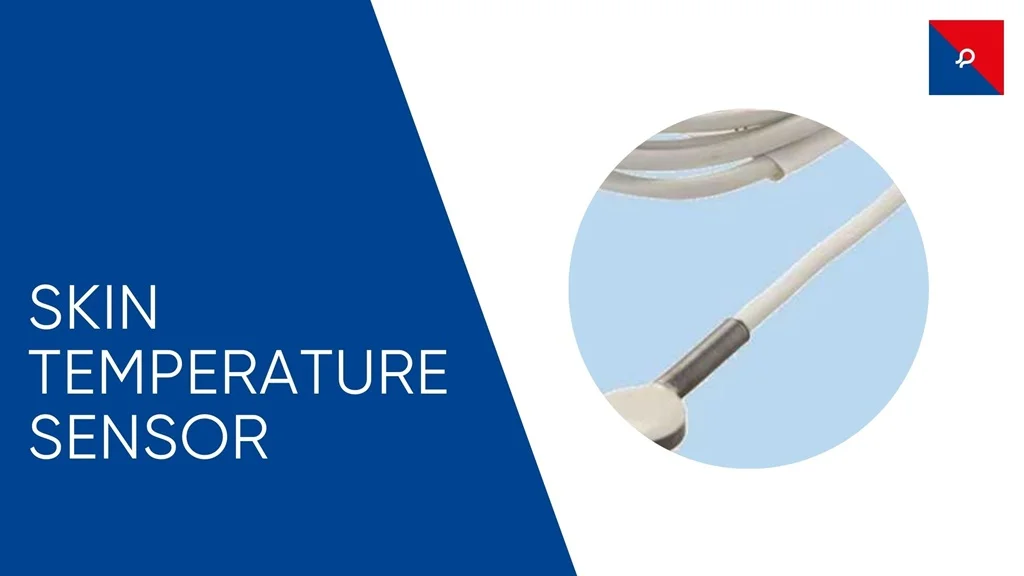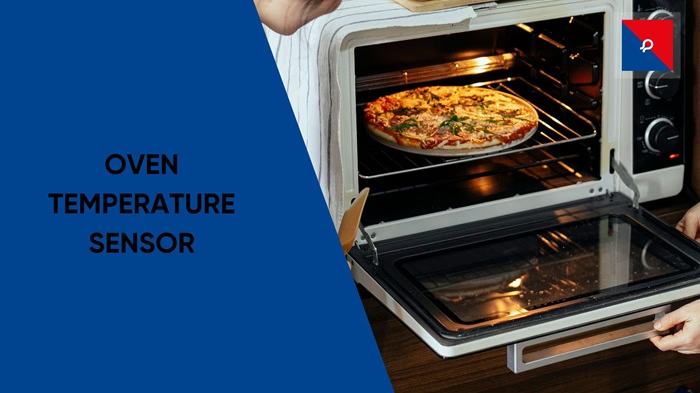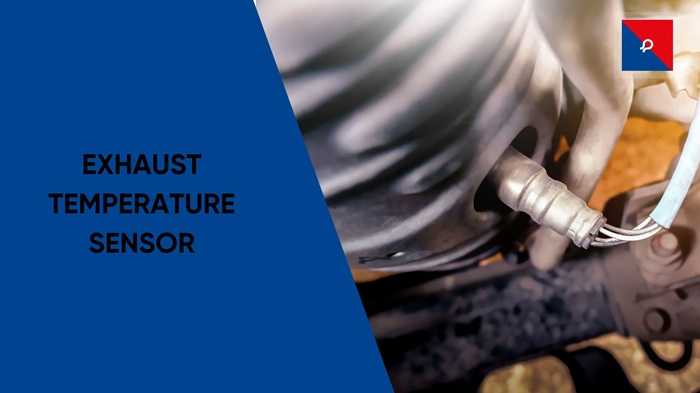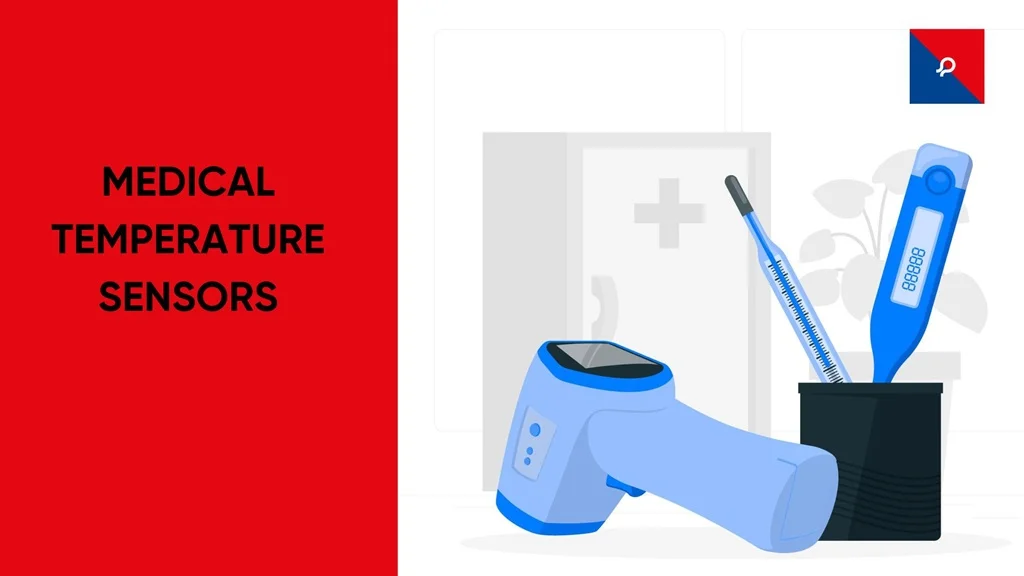
Can smartwatches show your body temperature? If you had asked this question a few years back, my answer would be NO. But now? The answer is YES. Yeah, you heard it right. The new age smart watches can detect your body temperature. These smart watches can also alert you about your changing skin temperatures when they go up. The reasons can be many. Be it sweating during sports activity, or feeling under the weather. Whatever the reason may be, these skin temperature sensors are always on and keep track of the smallest changes in your body. And do you know the cool part? These are not just for record-keeping. They are revolutionizing the fitness and health wellness industries at the same time.
In the gamut of industries, skin temperature sensors have been used from the high-end trackers for fitness to the thermal imaging devices. You can use these skin temperature sensors if you're an athlete or a health-conscious person, or just someone who likes to keep tabs on their body temperature. So, let’s see if they are accurate, and see what are best skin temperature sensors are in the market. Well, come and let’s fathom everything about them!
What Are Skin Temperature Sensors?
As the name only suggests, these skin temperature sensors are the sensors that measure and capture the skin temperature. Your core body temperature is quite steady. But skin? Well, it keeps on changing based on external factors. These can comprehend the environment, your activities or even in some cases your stress. The skin temperature sensors will pick up what's happening in those situations and give you insight into how your body reacts.
But the question -where do you even find these skin temperature sensors? It can be your smartwatches, the medical wearables, industrial applications, or even fitness trackers. As they can detect your early symptoms of illness or post-workout activity recovery, the skin temperature sensors are becoming an important part of modern health and fitness tech.
Types of Skin Temperature Sensors
There are various types of skin temperature sensors, each using its own technology. Let’s see one by one:
- Thermistors – As you already know, these are the main players for temperature sensing and the most widely used sensors for skin temperature. Their resistance changes with temperature, which makes them very dependable. Used in medical devices, wearables, and clinical research.
- Infrared Sensors – You know those thermal cameras? Non-contact Infrared thermometers are used to measure body temperature during fever. They can variably read the skin temperature even from a small distance without touching, just by picking up the heat your body radiates.
- Thermocouples – Made from two different metals, these sensors create a voltage that changes with temperature, making them really accurate for healthcare and medical uses.
- Flexible Printed Sensors- These are thin, bendy, and lightweight, making them perfect for wearable tech. Used in patches, bandages, and smart clothing.
- MEMS-Based Sensors (Micro-Electro-Mechanical Systems)- Ultra-small sensors used in modern wearables and smart healthcare devices. They offer a good balance of size, sensitivity, and low power usage. Ideal for continuous health monitoring.
Each of these technologies has its pros and cons, but together, they provide a robust system for tracking skin temperature in different environments.
Why Are Skin Temperature Sensors Important?
You may ask, but what's the whole point? And why should we even care about skin temperature sensors? Well, as they play a crucial role in the health and wellness industry, let’s see where they are useful:
- Early Illness Detection – If your skin temperature suddenly spikes, it could mean a fever. Devices like the WHOOP 4.0 use these sensors to warn you about potential illnesses before you even feel sick.
- Stress and Recovery Monitoring – Ever notice you feel warmer when you're stressed? That's because stress impacts your circulation. Skin temperature sensors keep track of your body's reaction to stress and how well you're recovering.
- Sleep Insights – Some smartwatches look at skin temperature to figure out how well you’re sleeping. If your temperature changes a lot during the night, it might be a sign of sleep issues or other health problems.
- Sports and Fitness Tracking – Sportspersons usually use the temperature sensors to track their hydration level, recovery stages, and during training.
- Medical Applications – Hospitals use skin temperature sensors to monitor patients’ health, spot infections, and also understand how wounds are healing.
- This shows why it’s getting more important to have good skin temperature sensors for both personal use and in healthcare settings.
Are They Always Accurate?
This is where things get interesting. While skin temperature sensors provide useful insights, they’re not perfect. Factors like ambient temperature, sweat, and even the placement of the device can impact accuracy.
For example, if you’re using a smartwatch with a skin temperature sensor, ensure it has good skin contact and isn’t too loose. Otherwise, readings might be off. Medical-grade sensors tend to be more precise, but even they require proper calibration.
Skin Temperature Sensors: What's Ahead
The tech behind skin temperature sensors is moving quickly. Researchers are developing electronic skin sensors that are made of flexible materials that sense temperature like human skin. Picture a future where your clothes can track your temperature and make adjustments as needed. It sounds like something from a sci-fi movie, but it's on the way.
Another cool advancement is mixing skin temperature info with AI health tools. Your smartwatch could soon alert you to illness before you even realize you're not feeling well. That’s definitely something to get excited about.
Best Skin Temperature Sensors
If you're on the lookout for the best skin temperature sensors, you've got a lot to choose from. Here are some favorites:
- WHOOP 4.0: This fitness tracker keeps an eye on your skin temperature and can help spot signs of getting sick or pushing yourself too hard.
- Oura Ring Gen 3: A stylish ring that tracks your skin temperature and offers insights on sleep, stress, and recovery.
- Apple Watch Series 8 & Ultra: These watches come with great temperature tracking features that work well with sleep and health monitoring.
Your choice will depend on things like accuracy, budget, and how you plan to use it. Whether you want something for fitness or a more medical-grade option, there's a skin temperature sensor that fits your needs!
JR Sensors: Pioneering Skin Temperature Sensor Solutions
When you need skin temperature sensors for neonatal care, JR Sensors is a solid choice. Well-known manufacturer of thermistors and temperature sensors in India, providing accurate devices for monitoring the temperature of newborns safely.
Their range of neonatal sensors includes:
– Universal Temperature Probe for Esophageal/Rectal use
– Air Temperature Sensor for baby warmers and incubators
– Body/Skin Temperature Probe for infant care units
– Body/Skin Sensor with Cable Guide Tail for secure placement
– Oral Temperature Sensor for gentle and precise readings
Each sensor is built to be sensitive and tough, perfect for critical neonatal settings. With JR Sensors, you can count on getting accurate measurements every time.
Final Thoughts
Wrapping up, we can all conclude that skin temperature sensors are not just any fancy electronic gadgets. They are a necessary and important part of our daily lives. If you are just curious about how your body temp changes, or you are a sports person or health conscious, or a fitness enthusiast, they give proper info on all the insights. And now with the huge improvement of the AI industry, the future of skin temperature sensors looks brighter and promising than ever before. So, now you know what's going on whenever your smartwatch pokes you.
Frequently Asked Questions
1. What is the difference between a skin temperature sensor and a skin temperature probe?
2. Can a skin temperature sensor be used in a lab?
3. Are flexible temperature sensors good for skin temperature monitoring?
4. Can skin-wearable sensors improve health information?

Burnt Biscuits? Blame the Sensor – The Hot Truth About Your Oven’s Temperature Troubles
If your oven’s cooking like it’s got a mind of its own, your temperature sensor might be the silent saboteur. From half-baked casseroles to scorched cookies, we break down how this little sensor works, why it matters, and how to fix it—without losing your cool (or your dinner). A fun, practical guide that’s just as useful as it is digestible.

Hot Stuff: Why Your Engine Can’t Live Without an Exhaust Temperature Sensor
Think exhaust sensors are just another car part? Think again. These tiny guardians track fiery exhaust temps, protect turbos, keep emissions in check—and even help you pass that dreaded test. Dive into the witty, down-to-earth guide on how EGT sensors silently save your engine (and your wallet) every day. Bonus: You’ll sound like a car guru by the end.

Tiny Tech, Big Impact: Inside the World of Medical Temperature Sensors
Discover how medical temperature sensors work, why they're crucial in healthcare, and how health sensors are transforming modern medical diagnostics. From wearable tech to high-precision devices, learn about the different types of temperature sensor medical devices used today.